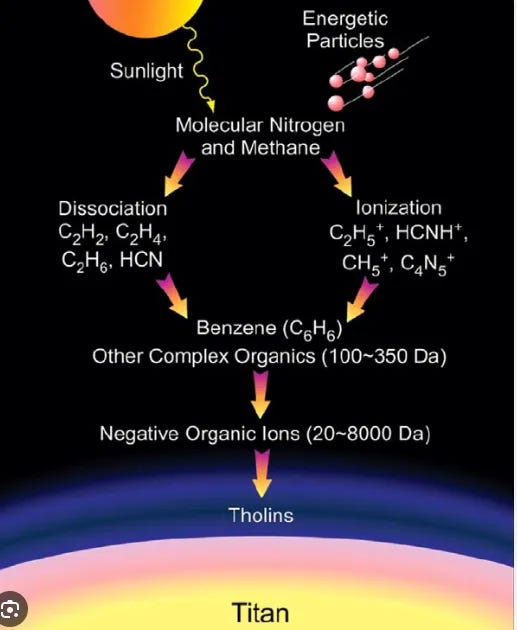The Dangerous Delusion of Limitless Oil: Why Titan's Methane Means Nothing for Earth
Why the Infinite Oil Argument Is Scientifically Baseless
The idea that the presence of hydrocarbons on other planets, such as Titan, suggests an abiotic origin for Earth's oil reserves and implies that these reserves are essentially inexhaustible is a deeply flawed and misleading narrative. This misconception not only distorts our understanding of Earth's geological history but also risks promoting complacency in the face of pressing global energy challenges. In this essay, I will critically examine the evidence and arguments surrounding this claim, highlighting why Earth's hydrocarbons are predominantly biotic in origin and why the notion of limitless oil is both scientifically unsound and dangerous.
Titan's Hydrocarbon Chemistry: A Unique Process
Titan, Saturn's largest moon, presents a fascinating case study in planetary chemistry. Its atmosphere is rich in nitrogen and methane, with trace amounts of other gases like hydrogen and acetylene. When ultraviolet radiation from the Sun interacts with Titan's methane-rich atmosphere, a process known as photochemical dissociation occurs, breaking apart methane molecules and initiating a cascade of chemical reactions. These reactions lead to the formation of a variety of hydrocarbon species, including more complex molecules such as polycyclic aromatic hydrocarbons (PAHs) and tholins, which are believed to contribute to the reddish-brown color of Titan's surface.

The presence of these hydrocarbons on Titan is often cited by proponents of the abiotic oil theory as evidence that Earth's oil could also be of non-biological origin.

However, this argument fails to recognize the distinct differences between the chemical processes occurring on Titan and the geological processes that created Earth's oil reserves.
Earth's Hydrocarbons: A Biotic Origin
Keep reading with a 7-day free trial
Subscribe to Irrational Fear to keep reading this post and get 7 days of free access to the full post archives.



